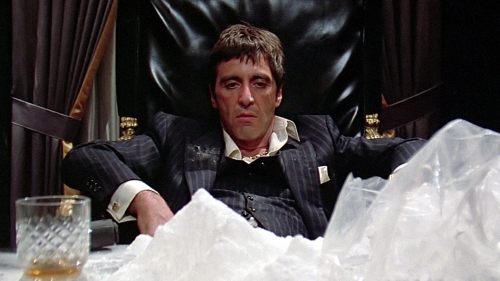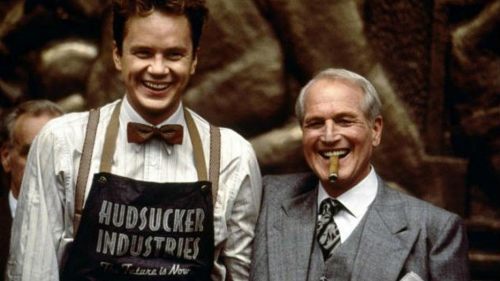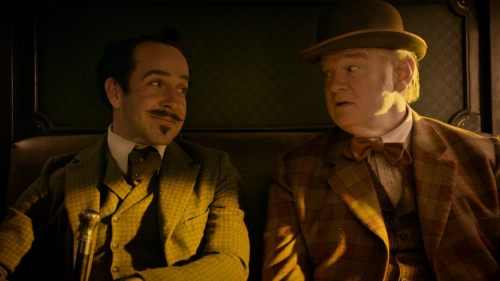INSIDE LLEWYN DAVIS And The Question Of Authenticity
You should see Inside Llewyn Davis before reading this.
The Coen Brothers have a reputation for not taking things seriously. They’re perceived as ironic, making movies that ensnare big critical thinkers into overanalyzing every shot. Interview the Coens and you’ll often find them giggly and claiming to have no idea where you’re finding a deeper meaning a scene. They like to fuck around, all the way to writing an essay by Roderick Jaynes - the fake name under which they edit their films - exploding the behind-the-scenes shenanigans of naming The Man Who Wasn’t There. There’s a perception of the Coens as inauthentic, never quite meaning what they say.
Which is part of what makes Inside Llewyn Davis such a surprise. It’s their most emotionally honest film - they hide less behind irony and weirdos this time than ever before - but it’s also a movie that is absolutely obsessed with the question of authenticity, while never actually addressing it head on.
Folk music is about one of the most authentic things in the world. It’s music that comes from the lower classes, from their real lives. Many folk songs are ‘traditional,’ which has many meanings, including that specific authorship is unknown. They seem to arise from the cotton fields and mines on their own, true examples of working man pain and suffering and joy. Folk music was, for a time, how a certain segment of society spoke to itself.
The folk revival of the 20th century was all about trying to get back to the authenticity of folk, and as is always the case with movements designed to rediscover purity, it came from an inauthentic place. We can trace the resurgent popularity of folk music to The Weavers, a 1940s act led by Pete Seeger, one of the grandfathers of modern folk. But Seeger wasn’t a working man; his regal family history stretched back 200 years in America, and his parents were well-off academics. His father helped found the discipline of ethnomusicology, the study of sociological components of music. Pete Seeger came into folk music not as a man toiling in the field but as a man making field recordings. Compare that to Woody Guthrie, who rode the rails and worked the fields and fought the war.
Which isn’t to run down Seeger on any level. It’s to point out the murky question of authenticity and how it haunted the folk revival from the start. The world of Llewyn Davis reflects this; well-fed, well-dressed white kids who never worked a day in their lives stand on a stage in a bohemian coffee shop singing ancient songs about experiences they’ll never have. While the folk music revival was very political, the small slice of the scene seen in Inside Llewyn Davis is absolutely apolitical. This is the prettier side of the folk music revival, the harmonies that found their way to the pop charts. As Pappi says, most of the people who come to the Gaslight come because they want to see Jean, not because they have a strong connection to the music. These people aren't singing to rally union workers, they're singing to enertain fellow hipsters.
The string of polished, middle-class folk acts is broken only twice in the film. Once it’s when Elizabeth Hobby takes the stage; she’s a legitimate down-home act, wearing a homespun dress and singing songs that, we can assume, reflect something closer to the reality of her life. Llewyn is faced, for perhaps the first time in the film, with authenticity. He heckles it. That authenticity comes back to kick him in the ass the next night, when Mr. Hobby beats the hell out of him in the alley.
That beating comes as Llewyn walks out of the Gaslight just as another young singer takes the stage. While everyone else in the film has a beautiful voice, this young man sings with a nasally twang that, to this day, baffles the uninitiated. That moment on stage, a moment Llewyn misses, is Bob Dylan changing the scene forever with his own brand of authenticity.
Of course Dylan is, in many ways, inauthentic. He’s a Midwest Jewish kid who reshaped himself into a new, possibly ultimately unknowable persona. But what Dylan, née Robert Zimmerman, does that the other singers in Inside Llewyn Davis doesn’t do is generate his own material, using his own life as fodder. While everyone else in the movie’s folk scene is rehashing what came before - “If it’s never new and it never gets old, it’s a folk song,” Llewyn says - Dylan is blazing new ground. Authenticity is about more than copying. Dylan takes the elements of traditional folk music and filters it through his own experience, understanding that the original authors of those songs weren’t just aping what went before but singing their lives.
It’s no surprise that Llewyn reacts poorly to the authentic Mrs. Hobby at the Gaslight - he has no ability to tell the true from the false. He doesn’t even know he’s carrying around an inauthentic cat. He has a view of what he thinks the truth of music should be - he rankles when Jean explains she sees music as a stepping stone to a suburban life - but he angrily admits that he hates the music he’s singing.
His authenticity troubles follow him to Chicago, where he tries to pass through the Gate of Horn, the famed nightclub. In Greek myth there were two gates through which dreams passed: the gate of ivory allowed through false dreams that plague us most nights, but the gate of horn was where the true dreams - portents, omens and foretellings - traveled. Llewyn is unable to bring his dream through the Gate of Horn.
What’s tragic is that the Gate of Horn is perhaps where he’s most authentic in his own way. He sings The Death of Queen Jane, an old English ballad about a pregnancy that kills the mother. It’s no coincidence that back in New York Jean - not quite Jane, but close - is carrying a baby that could be Llewyn’s. He’s trying to use folk music to explore his authentic feelings, but it doesn’t quite communicate. Later he tries again, singing a seaman’s song, The Storms Are On The Ocean, to his ailing sailor father. He’s unable to connect and his dad gives him the most damning critique of all - he shits himself.
The film itself takes some liberties with authenticity. The Incredible Journey, the animal travel picture upon which Llewyn reflects, didn’t come out until 1963, and the film is set in 1961. Dylan likely didn’t write his song Farewell until '63 (he definitely first recorded it then, at the Gaslight). But that song is vital to counterpoint what Llewyn is doing; we see him singing a song known as Dink’s Song, also called Fare Thee Well. For Llewyn it’s a breakthrough moment, a reclaiming of a song he once did with his dead partner, but it’s a breakthrough immediately undercut by Dylan performing a song with a similar title. Llewyn is never able to make that leap that Dylan does, to take the pain in him and make it new. Instead it gets lost as he sings somebody else's words.
There’s a lot more going on in Inside Llewyn Davis - I’m half-convinced that the cat is a joke on the screenwriting book Save The Cat, and I’m fascinated by the way the film brings Llewyn from world to world where he simply doesn’t belong - but it’s the film’s central question of authenticity that keeps tugging at me. Is Llewyn metaphysically inauthentic without Mike Timlin? Should he have taken Bud Grossman’s advice and become part of an act - an act that eventually, history tells us, became the slick, poppy Peter, Paul and Mary (famous for the children's drug song Puff the Magic Dragon)? Or, in the end, is it more important that he stay true to his dreams, no matter how impossible they are to achieve?
“To thine own self be true” is one of the greatest Shakespeare cliches, but it applies here. Llewyn Davis remains authentically himself. Even if himself is kind of an asshole.



